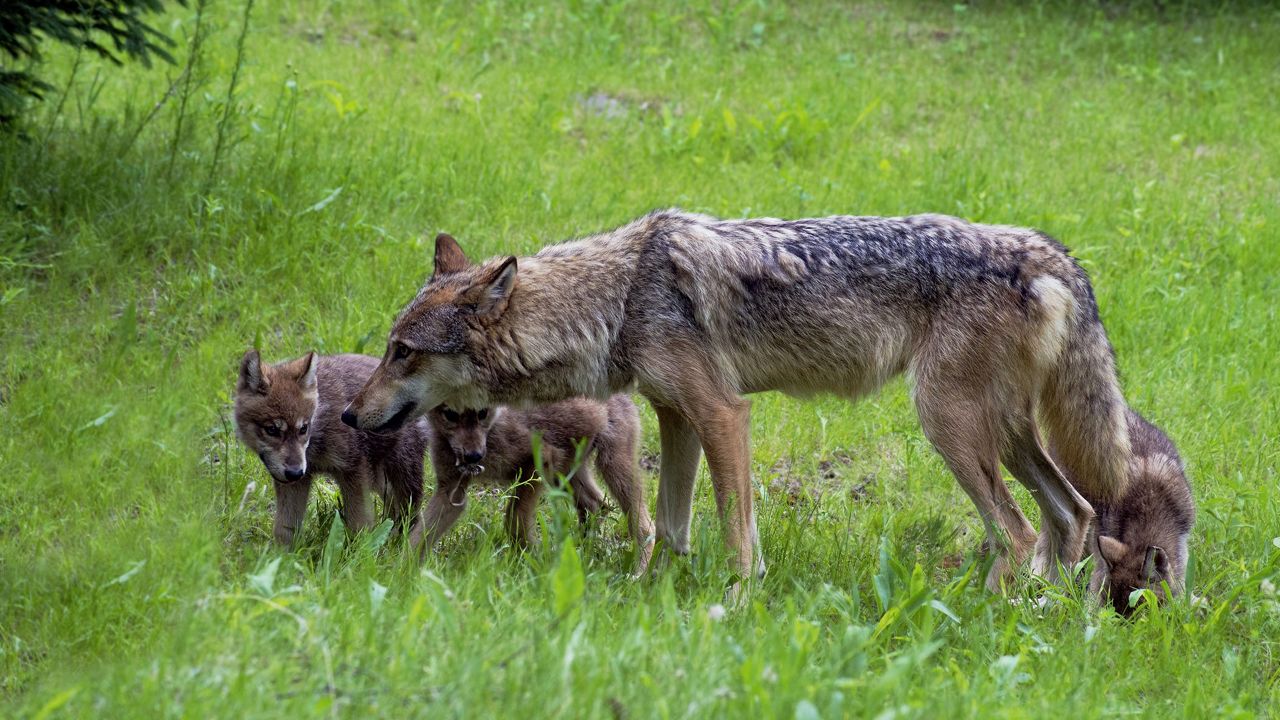NORTH CAROLINA — Coyote sightings are more likely to happen in May than any other month of the year, biologists with the N.C. Wildlife Resources Commission say.
What You Need To Know
- Coyote sightings often increase in May due to pup rearing
- Seeing these mammals in your community during this time of year is common
- Keep small animals on leashes and in encloused areas
- Remove pet food or scraps of food outside, and haze the coyotes to create a healthy fear of humans
The canine species is common throughout the state in cities and suburbs, but are skilled at avoiding people. Pup rearing in the spring, however, will force coyotes into the public more as they seek greater supply food, according to a press release from the commission.
Coyotes will roam across large and populated areas in search of rabbits, insects, fruits, rodents, carrion, pet food and table scraps to bring back to their young, the release said.
Attacks on humans are rare, experts say, so spotting a coyote in a residential area should not raise alarms. The commission does, however, urge pet owners to keep small pets close and supervised when outdoors. This includes keeping them on a leash, in an enclosed area or behind a dog-proof fence that is 6-feet high and cannot be dug under.
“Using a 6-foot leash is an excellent way to protect small pets when they’re outside,” advises Falyn Owens, extension biologist for the Wildlife Commission. “If you notice a coyote watching or following you during a walk, pick up your pet and haze the coyote until it leaves. Your physical presence can be a powerful deterrent for a curious coyote.”
The commission also says residents can deter coyotes by promoting a healthy fear of people, hazing any coyotes you may see, keeping bird food off the ground, pet food secured inside and removing easy food sources.
Experts do warn that coyotes may be less deterred during pup season, especially if their den is nearby.
“This time of year, if you pass through a brushy or wooded area and notice a coyote watching you or following you at a distance, it could have a den nearby,” Owens said. “Calmly leave the area and notify others if you are near a public trail.” Coyotes only use dens as a nursery for newborn pups, according to a release, and will abandon the den and move on as soon as the pups can survive outside.
If you have questions about interactions with coyotes, visit www.ncwildlife.org/coyote or contact the N.C. Wildlife Helpline, Monday through Friday, 8 a.m. to 5 p.m., at 866-318-2401. You can also email HWI@ncwildlife.org.








